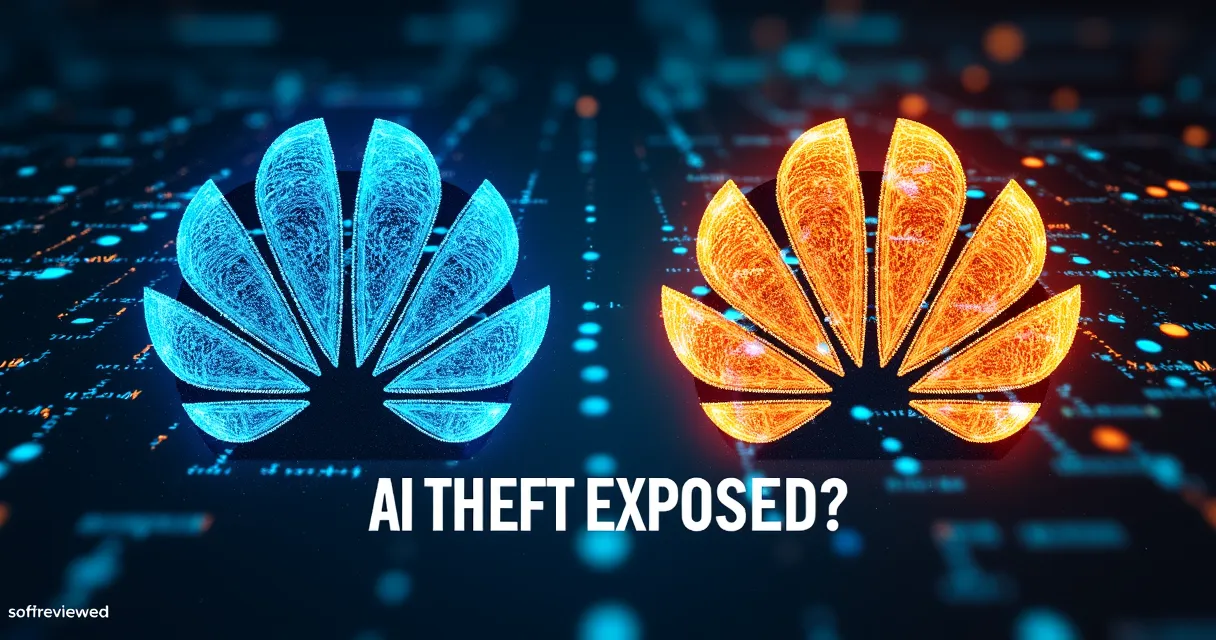Huawei's AI Scandal: Was Its New Pangu Model Secretly Copied From Rival Alibaba?
 jovin george
jovin george
Huawei finds itself at the center of a controversy that questions the originality of its latest AI creation. Recent claims suggest that the new Pangu Model may have been built by reusing key elements from Alibaba's Qwen framework. Critics argue that the striking similarities between the two models call into question whether Huawei pursued an independent development strategy or resorted to a shortcut at a time of intense domestic competition.
The Controversy Unfolds
Allegations first surfaced when an anonymous group published technical data highlighting a correlation coefficient of 0.927 between Huawei's Pangu and Alibaba's Qwen. The claim suggests that Huawei might have practiced a process known as upcycling, essentially fine-tuning an existing model rather than developing one from scratch. These assertions have sparked a broader discussion about innovation and intellectual property practices among leading tech firms in China.
Huawei has been quick to respond. Its research division, Noah's Ark Lab, has firmly denied the accusations by emphasizing that Pangu was built on proprietary Ascend AI chips and incorporates several key innovations. The company also underscored its adherence to open-source licensing protocols, asserting that third-party code was utilized only under proper licensing arrangements.
Comparing the Two AI Models
Understanding the differences between the models is key to appreciating the magnitude of these allegations. Below is a comparison of the two AI efforts:
| Feature | Huawei Pangu Pro | Alibaba Qwen 2.5 |
| Primary Focus | Enterprise, government, finance, manufacturing | Consumer applications, chatbots |
| Key Strengths | Industry-specific solutions; integration with hardware | Multimodal capabilities; multilingual support |
| Development | In-house creation using Huawei Ascend chips | Open-source foundation with versatile model design |
| Recent News | Open-sourced on China GitCode platform | Designed for efficiency on PCs and smartphones |
This table outlines a clear strategic distinction. Huawei leverages its entrenched hardware experience to deliver industry-targeted solutions. In contrast, Alibaba has focused on creating flexible, consumer-friendly models that extend the boundaries of open-source innovation.
Issues Raised by the Allegations
Several concerns have emerged from this unfolding scandal:
- Intellectual Property: If Huawei did indeed replicate key aspects of Alibaba's model, it could raise significant copyright issues.
- Data and Method Transparency: The controversy puts a spotlight on the standards used to validate claims in AI development. Critics argue that clearer verification methods may be needed.
- Trust in Open-Source Practices: With both companies relying in part on open-source frameworks, the incident could prompt a reevaluation of how collaborative innovations are credited and shared.
The Broader Implications
The debate transcends a simple dispute between two tech giants. It reflects the pressure within China's competitive AI market, where rapid advancements come paired with high expectations for originality and robust technical ethics. As the narrative unfolds, industry insiders caution that trust, once undermined, can have long-term repercussions for companies seeking to expand globally.
In light of these developments, both investors and technology watchers are calling for more transparency. Huawei has even proposed an independent audit of Pangu's source code to address public concerns and reaffirm its commitment to innovation.
Final Thoughts
The controversy surrounding Huawei's Pangu Model serves as a critical reminder that rigorous standards and ethical practices are essential for sustaining confidence in advanced AI development. With both companies continuing to push boundaries, the coming months could see significant changes in how AI models are evaluated and regulated.
➡️ Read Full Analysis on Huawei's AI Scandal
Subscribe to my newsletter
Read articles from jovin george directly inside your inbox. Subscribe to the newsletter, and don't miss out.
Written by

jovin george
jovin george
Hello there! I'm Jovin George, the proud founder of SoftReviewed. With over a decade of experience in digital marketing, I embarked on this exciting journey in 2023 with a clear vision – to assist software buyers in making informed and confident decisions. At SoftReviewed, my team and I are a bunch of passionate software enthusiasts dedicated to providing honest and unbiased reviews and guides. We aim to simplify the software buying process, ensuring that individuals find the best solutions tailored to their needs and budget. My role extends beyond founding SoftReviewed; I lead our dynamic team in reviewing, comparing, and recommending software products. From web design and development to SEO, SEM, SMM, and content marketing, I oversee it all. I'm genuinely enthusiastic about technology and software, and I love sharing my knowledge and insights with our incredible community. If you have any questions or feedback,don't hesitate to reach out. SoftReviewed is here to be your trusted source for software reviews and guides, making your software-buying experience easy and enjoyable. Thank you for choosing us on your journey through the digital landscape. Warm regards, Jovin George